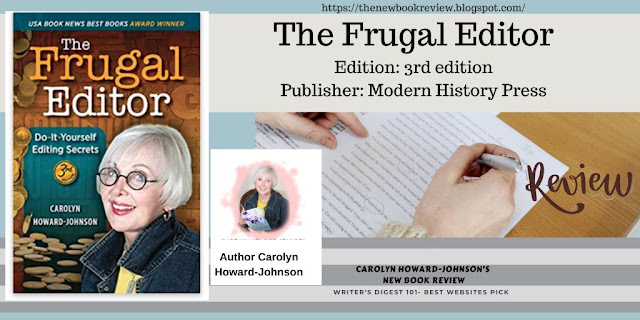Poetic History-Telling with Humor and Wit: A Review of Legends of Liberty Volume II by Andrew Benson Brown
Reviewed by Theresa Werba
Legends of Liberty II
Andrew Benson Brown
Bard Owl Publishing
978-1737551324
Released March 2024
$13.99 Paperback, 5.99 Kindle
265 pages
https://www.amazon.com/Legends-Liberty-Andrew-Benson-Brown/dp/1737551322/ref=cm_cr_arp_d_product_top?ie=UTF8
Andrew Benson Brown has created a continuation of his Revolutionary War historical mock epic in Legends of Liberty II. This is a retelling of history which blends fact with absurdity in a way that is surprising and innovative. In the tale we are presented with a continuation of Revolutionary War saga, and we encounter such notables as Ben Franklin, King George III, Thomas Paine, and George Washington. We are also taken through a fresh retelling of the Battle of Bunker Hill.
Benson Brown employs 10-line stanzas with alternating rhymes and final rhyming couplet. The form is ababcdcdee in lines of iambic pentameter with an additional metric foot in the last line. It may thus be seen as a sort of “truncated sonnet” form.
Benson Brown makes history humorous and interesting, and the retelling of the story is never dry or pedantic. At times it hardly feels like what is normally considered formal poetry—it is very story-like and moves with a brisk and expectant pace. We are reminded now and again of the funny and subtle rhymes and meter while reading an often-bizarre and surreal story. The historical mock-epic is overflowing with adroit rhymes and clever wordplay. Some of my favorite examples:
“Like a tree that sprouts full-grown
From fertile soil, Ben sprung upon his heels
And said with eager eccentricity,
‘Eureka! I’ve discovered electricity.’”
“’It happens to us highbrows.’
She traced a yellow carrot round the brights
Of yellow orbs: ‘What happened to your eyebrows?’”
“Immigrants all mutter grand
Ideas as their ships approach the motherland.”
The rhymes eccentricity/electricity//highbrows/eyebrows //and mutter grand/motherland are quite clever indeed, and the entire poem is replete with such examples.
I particularly liked Benson Brown’s description of 18th-century London from the eyes of the American Ben Franklin:
“Ben fumbled, squelching and meandering
Through worming alleys snaked with London fog.
A baron hounded whores, philandering.
A beggar prowled in shadows, licking grog.
A sooty urchin clawed loose pocket shillings.
Shopkeepers hawked their goods with piercing calls.
A gang, jaws bare, tore loot from their fresh killings.
Through haze, two folded wings—a dome?—St. Paul’s!
This scene of lawless riot and confusion
Exposed the lairs that darkened majesty’s illusion.”
I also thought the description of Franklin as a “human Tesla coil” to be particularly inventive, as is his depiction of the insanity of King George III as a man’s brain invaded by the devil in the form of a cockroach!!!
“One day as Britons cheered their sovereign’s sight,
The devil crawled into his servant’s brain.
He entered through the ear as a termite
And caused poor George the Third to go insane.
His Majesty’s gray matter had a tang—
Dis nibbled reason’s overlooking terrace.
The walls of speech fell next when yellow fangs
Went chewing on the pars opercularis.
Then recall’s fortress, breached with just a scamper,
Flapped like a tent when Satan bit the hippocamper.”
A particularly beautiful stanza involves repeating phrases and lines, rendered skillfully to poignant effect:
“The salt sea parts sweet lives from lovesick skies.
No motherland can stop tectonic shifting.
Connect the dots, or stars will fade from eyes:
A tree of broken branches slowly dies,
While crowns, well-pruned, stay healthy and uplifting.
The salt sea parts sweet lives from lovesick skies
When the sunset sails below the waves, to rise
Tomorrow, as the last ship darkens, drifting.
The salt sea parts sweet lives from lovesick skies.
Steer true: connect the dots, so stars don’t fade from eyes.”
The book is replete with illustrations which enhance the reading experience. The images are often surreal and Python-esque. Terry Gilliam would be proud!! The print edition, unconstrained by the rigidity inherent in Kindle formatting, inventively incorporates these illustrations and images into the formatting of the stanzas to pleasing effect, which complements Benson Brown’s metrical experiments and text layout.
The extensive annotations can be clicked on with the Kindle edition to provide extra elucidation and clarification.
I would highly recommend Legends of Liberty Volumes I and II as supplements and enrichment to any American history course taught at the high school and college levels as well as anyone who enjoys satire and humor combined with deftly-written poetry.
MORE ABOUT THE POET
Andrew Benson Brown is a poet and journalist living in Kansas City. He is a member of the Society of Classical Poets, where he regularly contributes poetry, essays, and reviews. His work has been published in a number of journals. He is also an arts columnist for the Epoch Times and a history writer for American Essence magazine.
MORE ABOUT THE REVIEWER
Theresa Werba the author of eight books, four in poetry, including the newly-released What Was and Is: Formal Poetry and Free Verse (Bardsinger Books, 2024). Her work has appeared in such journals as The Scarlet Leaf Review, The Wilderness House Literary Review, Spindrift, Mezzo Cammin, The Wombwell Rainbow, Fevers of the Mind, The Art of Autism, Serotonin, The Road Not Taken, and the Society of Classical Poets Journal. Her work ranges from forms such as the ode and sonnet to free verse, with topics ranging from neurodivergence, love, loss, aging, to faith and disillusionment and more. She also has written on autism, adoption and abuse/domestic violence. Find Theresa Werba at http://www.theresawerba.com and on social media @thesonnetqueen.







